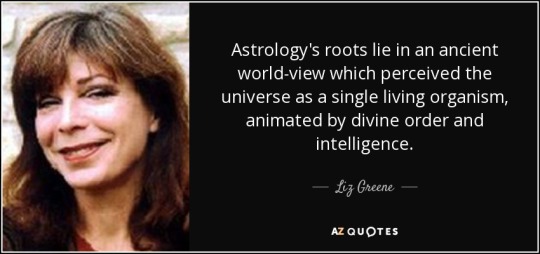#transpersonal
Text
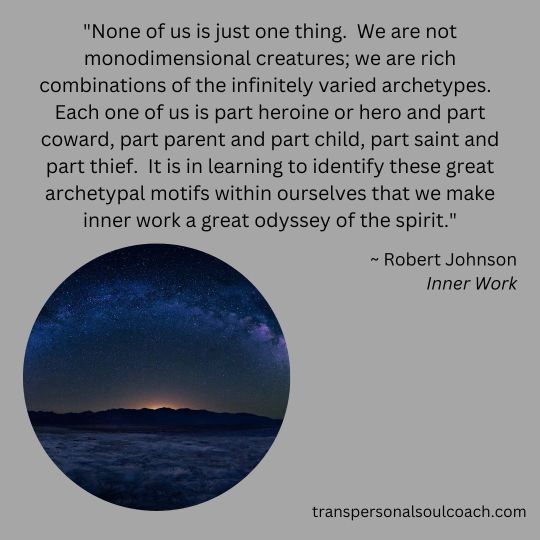
#transpersonal#transpersonalcoaching#mindfulness#meditationcoach#meditation#meditationpractice#innerwork#transformation#spirituality#spiritualwork#selfawareness#selfawarenessjourney#healing#healingjourney#soulwork#becomingconscious#jungian#wholeness#archetypes#archetypalcoach#archetypalcoaching#mensmentalhealth#masculinearchetypes#menshealing#mensspiritualhealth
3 notes
·
View notes
Photo
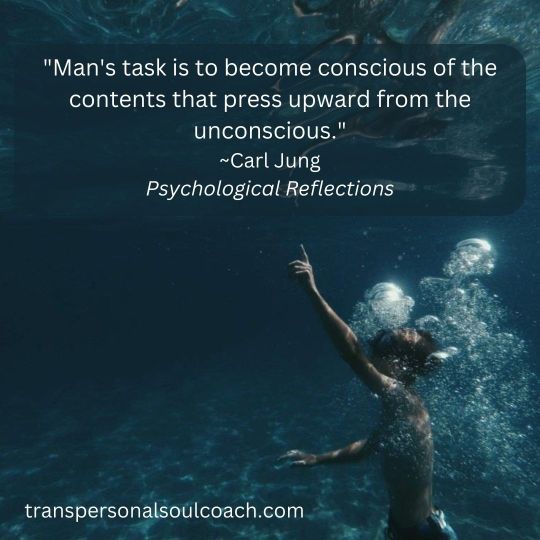
2 notes
·
View notes
Video
youtube
The following film, #Soul Searching, is an abstract #audio-visual representation of commonalities and echoes I have found across studied texts, interviews and research undertaken for this project on the subject of the soul.
I chose to anchor my research predominantly in my own western tradition and #religious/spiritual strands of thought that resonate most with my own experiences and unconscious cultural #paradigm. Through regular visits to the Alex Johnston Reference library, I developed focused #research around #concepts of the soul according to the western traditions of: - #Hermeticism - #Neoplatonic #Philosophy - #Rosicrucian Philosophy - #Transpersonal #Psychology - #Theosophy - #Gnostic Texts - #Alchemical Texts - #Jewish/Christian #Kabbalah and #Mysticism - #Ancient #Egyptian Texts.
These traditions survived either through sectarian branches of monotheistic practice (as with Gnosticism and mysticism) or through practices directly outside of (and sometimes in opposition to) the canon of mainstream denomination. The use of language of these texts veil the meaning through subtle and abstract language forms. Some of these source materials purposely obscures the essential message so as to protect their pupils and to escape heretical accusations for its deviation from the cultural monotheistic dogma - however, in most traditions, adepts of the teaching schools are deliberately presented with analogies and shrouded messages, presented as gateways of knowledge, through personal engagement with the totality of Self.
The ineffable is respected for its inherent qualities, by allowing its meaning to fall outside of the domination and restriction of language. Rather, it is found in the space between fixed language.
As such, gentler, less directive language, that is subtle and allows the individual to arrive at their own implicit meaning making, is used in an attempt to describe the indescribable.
Without earthly form and beyond the reaches of knowing through ordinary means, the soul is understood through our internal resonance, through subtle personal gnosis - that is, knowledge beyond intellectual knowledge, an inner knowing; through contemplation and experience.
This film endeavours to propose an abstract representation of the ineffable in motion, inviting the viewer to contemplate and tune into their own inner knowing.
For the purpose of this piece, I have set out to demonstrate the fluidity and dynamism of the soul, as well as its splicing with the representational facets we experience in our waking life; corporeality, matter, mind, consciousness, emotions - all properties through which we encounter the soul.
These synergistic attributes are in symbiosis with the soul, both enveloped by it, and expressed within the function of its parts.
Through the development and growth of individual parts, we grow the whole of our individual soul.
Within the work I hope to infer the possibility of our individual soul as an expression of an #AnimaMundi , the ALL, a universal soul, enveloping and expressed through individual parts.
A special thank you to interview contributors:
Gary Kidgell - Professional Esoteric Astrologer and Author
Mike hall - Qigong & Tai Chi Consultant, Theosophical Society Chair
Marcus LeBroque - Kabbalist, Teacher
Father James Cadman - Exorcist, Catholic Priest
Luca McQuillan, David McLoone, Jamie L McKenzie & Charlene Morgan - Catholics
List of Notable Books:
The Way of Divine Union - Arthur Edward Waite
Reincarnation; A study of Forgotten Truth - E.D.Walker
Everyone's Book of the Dead - Tim Wyatt
Cycles of Eternity - Tim Wyatt
From Soul to Soul - John M Watkins
Mansions of the Soul; The Cosmic Conception - H. Spencer Lewis
Esoteric Psychology; The Seven Rays - Dr Douglas Baker
The Soul’s Imperative - Harold Tarn
The Philosophy of Witchcraft - J. Mitchell & Jn. Dickie
Witchcraft, Magic and Alchemy - Grillot de Givry
Egyptian Magic - S.S.D.D edited by W.W.Westcott
The World Soul - H. Fielding Hall
Transpersonal Development - Roberto Assagioli
The Inner Journey; Pathways to the Higher Self - Gary Kidgell
The Lamp Relit - Vestigo
The Book of the Dead; Papyrus of Ani - E. A. Wallis Budge
Cosmic Consciousness - Richard Maurice Bucke
The Sevenfold Planes of Nature - Susan Bayliss (article)
Who Do You Think You Were - Robert Woolley (article)
#anima mundi#soul#divine#kabbalah#ancient egypt#theosophy#transpersonal#hermetic#gnosticism#alchemy#experimental#research#project#art#creative#rosicrucian#mysticism
4 notes
·
View notes
Text
Transpersonal Take on Coronavirus
Giving in is the main thing, as is having no agenda for getting well for any certain reason or by any particular time. When I’m in this place, it’s a dance, an adventure in feints and blows...
Covid is an interesting partner because it’s so wacky, unpredictable, and changeable…
I finally got the golden ticket this Jul via my lover’s holiday party, and it’s been like a substantial flu. I haven’t been sick since November 2019. However, I discover that my experience with (temporarily) debilitating illness has changed significantly in ways that might be useful to you, so I’m going on a…

View On WordPress
2 notes
·
View notes
Text
The one thing I know for certain is being alone.
#voidpunk#paranormal#transpersonal#haki of the supreme king#literally tagging this with whatever#bc i live the horror of being alone#yet known in some ways bc people are gross or nosy#and really i just dont want shit to do with anyone#unless theyre like me#unless they get me#see me#can be trusted
4 notes
·
View notes
Text

The Intellect: an aspect of life that is fleeting and dynamic.
"Intellectual Wellness is strengthened by continually engaging the mind." "Every night before we go to sleep, we must ask ourselves: What weakness did I overcome today? What virtue did I acquire? Intellect refers to, describes, and identifies what is true and what is false in our realities..." Dr. Sixto
Intellectual thinking lies in the way that we look at our personal growth and development. In the confusion that life may present, in the behavioral quandaries that we may encounter, the intellect asks, how can I live harmoniously and productively? And the intellect will go further to observe how to create a life that will create excellence not only for the Self but also for Others. We are not talking about the moral aspects of right and wrong. We are talking about the human intellect, the capacity in that intellect of the awareness and understanding to generalize experiences, to work with abstract terms, and to make conclusions from assumptions to reach higher consciousness; stimulating us to transcend our primal animal instincts and move past self-interest and cravings. Hmmm, that is a lot to think about, quite a mouthful really!
The intellect helps us to go beyond living in a reactionary state to a place where we take a more proactive approach to life. In a proactive frame of mind, the mind considers the overall state of the being and develops solutions to avoid similar “chaos” in the future. In other words, being proactive will more likely promote a behavioral foundation with less stress, where the unanticipated consequences of life are less impactful on the psyche. Easier said than done?
Those cogs and wheels, if rightly lubricated are the force that keeps societies moving forward. It is the capacity for intellectual thinking that empowers cultures to be their very best. It is not about intelligence. Having intellect is a thinking process by which we attain a level of personal fulfillment in life and equips us to face life more creatively and productively.
I am sure I am not the only one who has met an Ivy League graduate who “lacks” intellectual abilities. The intellect lends itself to all aspects of well-being as when we exercise the power of our intellect it means that we are doing the best with what we know, right now at this present moment. Exercising the intellect, therefore, is a lifelong discipline and therefore an equally important discipline in the 8 disciplines (pillars) of Holistic Wellness. Every time we exit our surroundings into the outside world, we come back to where we started a different person. Some occurrence, some encounter, such as stopping to smell a vibrant red rose with its intoxicating fragrance changes a perspective in our soul. It is a new experience, a new way of looking at ourselves, and we grow. When we grow we use our intellect.
Keeping the mind sharp it has been shown, creates new connections between brain cells (new behaviors are born) by changing the balance of available neurotransmitters and changing how connections are made,” In other words, staying sharp means stimulating more brain cells, in modern science, we call this growth of new cells a process called Neurogenesis. The concept evolves into a simple meaning: learning and intellect is a lifetime process. Our brains demand that we exercise our intellect to address the impermanence of life, the ever-changing nature. Due to this impermanence life seems to create quite a bit of fear. Yet without change we stagnate, we stall, and our lives may even become less of a thrill something that should never be in question: The thrill of life.
“Two elements must therefore be rooted out once for all, —the fear of future suffering, and the recollection of past suffering; since the latter no longer concerns me, and the former concerns me not yet.” – Seneca
Unknowingly my life has been an experiment in impermanence and all for the good. From leaving my homeland at an early age fleeing from what would eventually destroy the country and its society, to growing up within a culture of different values to the perplexity of my self-discovery. College was a life-changer, I toured Europe, studied in Paris, France, and visited the homeland of my grandparents, the Canary Islands. This trip was influential in opening my intellect to even more growth opening my eyes to life’s riches. I finished grad school, got stuck in uninspiring jobs, then found great joy in a career that would later push me to rebuild and rethink my life. Through hardships and there were many, I arrived at my present stage, here I am, a doctor in Holistic Health and Nutrition, what I feel was my life’s calling all along. Was it a thrill? absolutely not. Was it fulfilling? wouldn’t change a thing, well, just a couple of things.
As I sit here and write this piece, I know that more change is to come and I will accept the thrill and keep on moving. There are new people to meet, more places to see, and more disciplines to enjoy. There is always change, life is impermanent, and exercising our intellect is paramount for us to effectively deal with change and seek a beautiful joyful state in life. “We should just live, and let life be, instead of constantly preparing ourselves to live” (paraphrasing Seneca, Roman (Spanish) philosopher). Let’s let things be, and let us let things happen the way they happen, stop controlling what has already been determined, in some way, is meant for us. We should focus on the present and not live our lives worrying about what is to come.
Intellectual Wellness is about feeding your curiosity through learning, switching from the rigid to the flexible brain. Using our neuroplasticity we can expand our knowledge and skills to help live a full, engaging life. Intellectual Wellness is strengthened by continually engaging the mind. Doing so can help you build new skills and knowledge that inspire and challenge you, and help you grow. You might choose different ways to keep your mind sharp—depending on your mood. Sharpen meditation skills, try brain self-care such as brain games, puzzles, or exercises in mental wellness. Enjoy a new scholastic endeavor such as learning a foreign language (bilingualism has been shown to provide many cognitive benefits and fortify the mind, experiencing less cognitive decline in later years1), or even simply engaging in intellectually stimulating conversations and debates can strengthen this Holistic Wellness discipline. In other words, less television and more interaction with others, getting involved in the community, or other avenues of personal growth can stimulate the experience of an intellectual boon.
Intellectual wellness is focused on strengthening your mind by continually engaging your curiosity, expanding your knowledge, and building new skills to inspire, challenge, and help one another grow and live full lives in healthy living environments free of extreme ideologies. In today’s world, we need to deter those egocentric intellectuals or those with the inability to understand that another person’s view or opinion may be different than their own. In the study of the human mind, intellect refers to, describes, and identifies the ability of the human mind to reach correct conclusions about what is true and what is false in reality or their reality; and how to solve problems. The discussion of intellect is in two areas of knowledge2 that concern the relationship between intelligence and intellect.
Being socially engaged may help fend off social isolation and depression, both of which have been linked with a decline in cognitive functioning. Having good social support also reduces stress, another aspect of negativity on thinking and cognitive skills. This takes me to the topic of what are Cognitive Skills. Cognitive Skills are the core skills your brain uses to think, read, learn, remember, reason, and pay attention. Working together, they take incoming information and move it into the bank of knowledge you use in everyday life. Each of your cognitive skills plays an important part in processing new information. That means if even one of these skills is weak, no matter what kind of information is coming your way, grasping, retaining, or using that information is impacted. It is safe to say then that most behavioral quandaries are caused by one or more weak cognitive skills.
Every night before going to sleep, we must ask ourselves: What weakness did I overcome today? What virtue did I acquire? What can I do to achieve serenity in my life? What matters: The intellect.
1 Marian, V., & Shook, A. (2012). The cognitive benefits of being bilingual. Cerebrum : the Dana forum on brain science, 2012, 13. National Library of Medicine. Retrieved August 22, 2022, from https://www.ncbi.nlm.nih.gov/pmc/articles/PMC3583091/Accessed 8/23/22
2 Knowledge - Wikipedia. (2022). Retrieved 23 August 2022, from https://en.wikipedia.org/wiki/Knowledge
#awareness#Health#HigherPower#IntellectualWellness#Lifeisinsession#LifeSkills#MentalWellbeing#mindfulness#mindfulnessandbeauty#psychology#selfcare#society#Spirituality#transpersonal
2 notes
·
View notes
Text
Amazon Featured Book-of-the-Week: "The Way OF VEGETARIANISM, SELFHOOD, AND THE BEYOND" by Steven Arthur Collier Ph. D.
Most books on vegetarianism focus on the external: why to choose vegetarianism, how to navigate the world as a vegetarian, recipes. With The Way Of Vegetarianism, Selfhood, And The Beyond, Steven Arthur Collier, PhD, goes a different, exciting direction. He has written a book for vegetarians and nonvegetarians alike that focuses instead on the internal, that answers the question we all must ask:…
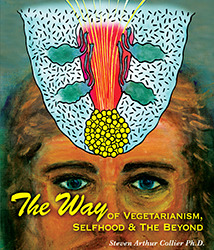
View On WordPress
#amazon#amazon books#movement#non-fiction#one-click-publishing#outskirts press#Psychology#self-publishing#stevenarthurcollier#thewayofvegetarianism#transpersonal
0 notes
Text
El Desarrollo del Potencial Humano
La psicología transpersonal es una rama de la psicología que se centra en el estudio y la comprensión de los aspectos más elevados y trascendentales de la experiencia humana. Se basa en la premisa de que los individuos tienen un potencial ilimitado para el crecimiento, la autorrealización y el desarrollo de sus capacidades más elevadas.
En este artículo, exploraremos el papel de la psicología…

View On WordPress
0 notes
Text
⚠️Esta carta, atribuida a la letra Mem, representa el elemento Agua. Quizá fuera más exacto decir que representa la función espiritual del agua en la economía de la iniciación; es un bautismo que es también una muerte. 🛎️En el Aeón de Osiris esta carta representaba la fórmula suprema del adeptado, pues la figura del ahogado o ahorcado tiene su propio significado especial. Las piernas están cruzadas de tal modo que la pierna derecha forma ángulo de 60°, como para formar un triángulo equilátero; esto resulta en el símbolo del Trángulo coronado por la Cruz, que representa el descenso de la luz en las tinieblas para redimirlas. Por esta razón hay discos verdes el verde, el color de Venus, significa Gracia en los extremos de piernas, brazos y cabeza.
El aire que se ve sobre la superficie del agua es también verde, un verde impregnado por los rayos de luz blanca de Kether. La figura pende en conjunto del Ankh, otra forma de representar la fórmula de la Rosa y la Cruz, mientras que alrededor del pie izquierdo vemos a la Serpiente, creadora y destructora, que produce todo cambio. (Esto lo veremos en la carta siguiente.)
🙀Es significativo que exista un aparente aumento de oscuridad y solidez a medida que se manifiesta el elemento redentor, pero el verde es el color de Venus, de la esperanza que hay en el amor. Ello depende de la formulación de la Rosa y la Cruz, de la aniquilación del yo en el Amado, la condición de progreso. En esta oscuridad inferior de la muerte comienza a agitarse la serpiente de la nueva vida.
🫂En el pasado Aeón, el de Osiris, el elemento Aire, que es la característi. ca de ese Aeón, está en simpatía tanto con el Agua como con el Fuego; el compromiso era un signo de aquel período. Pero ahora, bajo un señor Ígneo del Aeón, el elemento ácueo, en tanto que el agua está por debajo del abismo , es claramente hostil, a no ser que la oposición sea la oposición correcta implicada en el matrimonio. ⚡Pero en esta carta la única cuestión es la de la «redención» del elemento sumergido y, por consiguiente, todo está al revés. Esta idea de sacrificio, en el análisis final, es una idea errónea.
🌹
<<Yo doy alegrías inimaginables en la tierra: certidumbre, no fe, durante la vida, en la muerte; paz indecible, descanso, éxtasis; nada pido en sacrificio.»
<<Cada hombre y cada mujer es una estrella.>>>
⚠️Toda la idea del sacrificio es un concepto falso sobre la naturaleza, y estos textos del Libro de la Ley aclaran la cuestión.
Sin embargo, el agua es el elemento de Ilusión; podemos considerar este símbolo como un desafortunado legado del viejo Aeón; utilizando una analogía anatómica, se trata de un apéndice vermiforme espiritual.
El agua y los Moradores del Agua fueron quienes mataron a Osiris; son los cocodrilos quienes amenazan a Hoor-Pa-Kraat.
💔Esta carta es bella de una forma extraña, inmemorial y moribunda. Es la carta del Dios Agonizante; su importancia en la presente baraja es simplemente la del Cenotafio. Dice así: «Si por ventura las cosas vuelven a funcionar otra vez mal en la nueva Era Oscura que parece amenazarnos, esta es la forma de enderezarlas». Pero si hay que enderezarlas, quiere decir que están muy torcidas.
🙏🏻 La meta más importante de los sabios debería ser la de liberar a la humanidad de la insolencia del autosacrificio, de la Calamidad de la castidad; la fe debe ser aniquilada por la certidumbre, y la castidad por el éxtasis.
🥴En el Libro de la Ley está escrito: «¡No os apiadéis de los caídos! Jamás los conocí. No soy para ellos. Yo no consuelo: odio al consolado y al que Consuela».
🛎️Redención es una palabra inadecuada; implica una deuda. Pues cada estrella posee una riqueza ilimitada; la única forma acertada de tratar a los necios es hacerlos conocer su herencia estelar. Para hacerlo es necesario comportarse como cuando queremos establecer buenas relaciones con los animales y los niños: tratarlos con tal respeto e, incluso, en cierto sentido, Con reverencia.
🥴OM NAMAH SHIVAYA
🗝️Nota sobre la Precesión de los Aeones. «El Ahorcado» es un invento de los Adeptos de la fórmula I.N.R.I. I.A.O.; en el Acón que precedió alOsiriano, el de Isis (Agua), él es «El Ahogado». Los dos soportes verticales de la horca que vemos en las barajas medievales eran, en el sistema parte- nogenético de explicar y dirigir la Naturaleza, el fondo del Mar y la quilla del Arca. En este Aeón se consideraba que todo nacimiento era una emanación, sin intervención masculina, de la Diosa-Madre o Estelar, Nuit, y toda muerte un retorno a Ella. Esto explica la atribución original del Atu al Agua, y el sonido M el retorno al Silencio Eterno, como en la palabra AUM. Esta carta está, pues, consagrada especialmente a lo Místico, y la actitud de la figura es una postura ritual de la Práctica llamada «El Sueño de Shiloam».
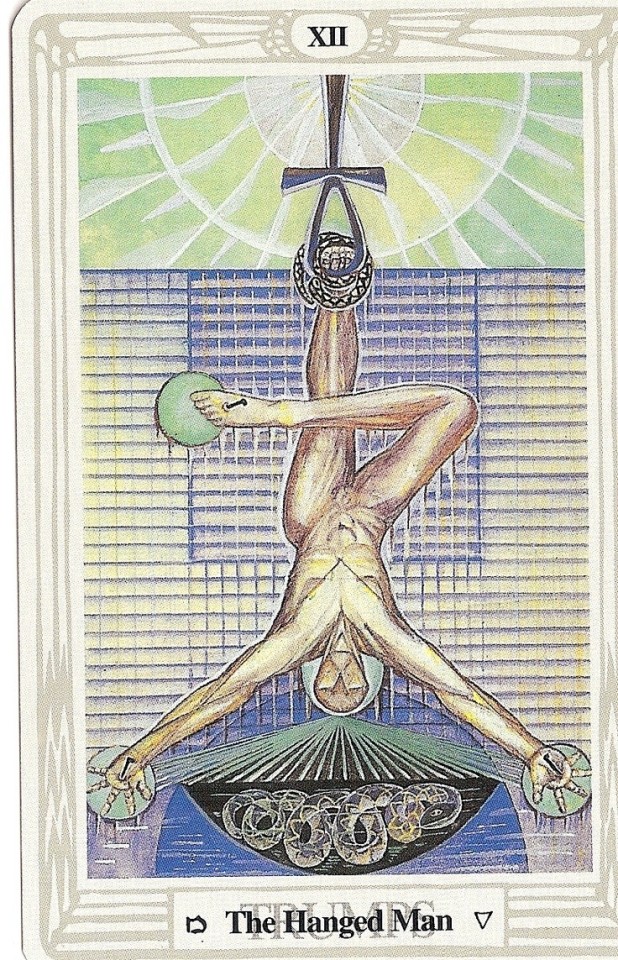
1 note
·
View note
Text

#transpersonal#transpersonalcoaching#mindfulness#meditationcoach#meditation#meditationpractice#innerwork#transformation#spirituality#spiritualwork#selfawareness#selfawarenessjourney#healing#healingjourney#soulwork#becomingconscious#jungian#wholeness#archetypes#archetypalcoach#archetypalcoaching#mensmentalhealth#masculinearchetypes#menshealing#mensspiritualhealth#jameshillman#soul#soulawakening
2 notes
·
View notes
Photo

0 notes
Text
#trans death#transdeath#apotheosis psychotherapy#transnecromancy#Apotheosis#transhumanism#Transpersonal#Trans
0 notes
Text
Chart Ruler Transits [Reflection]
The chart ruler is often experienced as one of those subtle, yet incredibly powerful, influences in our experiences because it affects so many parts of our natal charts...
My experience of chart ruler transits is far more subtle and multifaceted than other transits…
I have read multiple references as to the importance of chart rulers, and I have respected their influence in chart interpretations. On the personal side, in case you didn’t hear about the triple conjunction of Mars–Uranus–North Node that some of us were writing about [link], that occurred when it was…

View On WordPress
4 notes
·
View notes
Text
"Intellectual Wellness is strengthened by continually engaging the mind."
"Every night before we go to sleep, we must ask ourselves: What weakness did I overcome today? What virtue did I acquire? Intellect refers to, describes, and identifies what is true and what is false in our realities..."
Dr. Sixto
Intellect explores what is true and what is false in our reality.
Intellectual thinking lies in the way that we look at our personal growth and development. In the confusion that life may present, in the behavioral quandaries that we may encounter, the intellect asks, how can I live harmoniously and productively? And the intellect will go further to observe how to create a life that will create excellence not only for the Self but also for Others. We are not talking about the moral aspects of right and wrong. We are talking about the human intellect, the capacity in that intellect of the awareness and understanding to generalize experiences, to work with abstract terms, and to make conclusions from assumptions to reach higher consciousness; stimulating us to transcend our primal animal instincts and move past self-interest and cravings. Hmmm, that is a lot to think about, quite a mouthful really!
The intellect helps us to go beyond living in a reactionary state to a place where we take a more proactive approach to life. In a proactive frame of mind, the mind considers the overall state of the being and develops solutions to avoid similar “chaos” in the future. In other words, being proactive will more likely promote a behavioral foundation with less stress, where the unanticipated consequences of life are less impactful on the psyche. Easier said than done?
Those cogs and wheels, if rightly lubricated are the force that keeps societies moving forward. It is the capacity for intellectual thinking that empowers cultures to be their very best. It is not about intelligence. Having intellect is a thinking process by which we attain a level of personal fulfillment in life and equips us to face life more creatively and productively.
I am sure I am not the only one who has met an Ivy League graduate who “lacks” intellectual abilities. The intellect lends itself to all aspects of well-being as when we exercise the power of our intellect it means that we are doing the best with what we know, right now at this present moment. Exercising the intellect, therefore, is a lifelong discipline and therefore an equally important discipline in the 8 disciplines (pillars) of Holistic Wellness. Every time we exit our surroundings into the outside world, we come back to where we started a different person. Some occurrence, some encounter, such as stopping to smell a vibrant red rose with its intoxicating fragrance changes a perspective in our soul. It is a new experience, a new way of looking at ourselves, and we grow. When we grow we use our intellect.
Keeping the mind sharp it has been shown, creates new connections between brain cells (new behaviors are born) by changing the balance of available neurotransmitters and changing how connections are made,” In other words, staying sharp means stimulating more brain cells, in modern science, we call this growth of new cells a process called Neurogenesis. The concept evolves into a simple meaning: learning and intellect is a lifetime process. Our brains demand that we exercise our intellect to address the impermanence of life, the ever-changing nature. Due to this impermanence life seems to create quite a bit of fear. Yet without change we stagnate, we stall, and our lives may even become less of a thrill something that should never be in question: The thrill of life.
“Two elements must therefore be rooted out once for all, —the fear of future suffering, and the recollection of past suffering; since the latter no longer concerns me, and the former concerns me not yet
.” – Seneca
Unknowingly my life has been an experiment in impermanence and all for the good. From leaving my homeland at an early age fleeing from what would eventually destroy the country and its society, to growing up within a culture of different values to the perplexity of my self-discovery. College was a life-changer, I toured Europe, studied in Paris, France, and visited the homeland of my grandparents, the Canary Islands. This trip was influential in opening my intellect to even more growth opening my eyes to life’s riches. I finished grad school, got stuck in uninspiring jobs, then found great joy in a career that would later push me to rebuild and rethink my life. Through hardships and there were many, I arrived at my present stage, here I am, a doctor in Holistic Health and Nutrition, what I feel was my life’s calling all along. Was it a thrill? absolutely not. Was it fulfilling? wouldn’t change a thing, well, just a couple of things.
As I sit here and write this piece, I know that more change is to come and I will accept the thrill and keep on moving. There are new people to meet, more places to see, and more disciplines to enjoy. There is always change, life is impermanent, and exercising our intellect is paramount for us to effectively deal with change and seek a beautiful joyful state in life. “We should just live, and let life be, instead of constantly preparing ourselves to live” (paraphrasing Seneca, Roman (Spanish) philosopher). Let’s let things be, and let us let things happen the way they happen, stop controlling what has already been determined, in some way, is meant for us. We should focus on the present and not live our lives worrying about what is to come.
Intellectual Wellness is about feeding your curiosity through learning, switching from the rigid to the flexible brain. Using our neuroplasticity we can expand our knowledge and skills to help live a full, engaging life. Intellectual Wellness is strengthened by continually engaging the mind. Doing so can help you build new skills and knowledge that inspire and challenge you, and help you grow. You might choose different ways to keep your mind sharp—depending on your mood. Sharpen meditation skills, try brain self-care such as brain games, puzzles, or exercises in mental wellness. Enjoy a new scholastic endeavor such as learning a foreign language (bilingualism has been shown to provide many cognitive benefits and fortify the mind, experiencing less cognitive decline in later years1), or even simply engaging in intellectually stimulating conversations and debates can strengthen this Holistic Wellness discipline. In other words, less television and more interaction with others, getting involved in the community, or other avenues of personal growth can stimulate the experience of an intellectual boon.
Intellectual wellness is focused on strengthening your mind by continually engaging your curiosity, expanding your knowledge, and building new skills to inspire, challenge, and help one another grow and live full lives in healthy living environments free of extreme ideologies. In today’s world, we need to deter those egocentric intellectuals or those with the inability to understand that another person’s view or opinion may be different than their own. In the study of the human mind, intellect refers to, describes, and identifies the ability of the human mind to reach correct conclusions about what is true and what is false in reality or their reality; and how to solve problems. The discussion of intellect is in two areas of knowledge2 that concern the relationship between intelligence and intellect.
Being socially engaged may help fend off social isolation and depression, both of which have been linked with a decline in cognitive functioning. Having good social support also reduces stress, another aspect of negativity on thinking and cognitive skills. This takes me to the topic of what are Cognitive Skills. Cognitive Skills are the core skills your brain uses to think, read, lea
rn, remember, reason, and pay attention. Working together, they take incoming information and move it into the bank of knowledge you use in everyday life. Each of your cognitive skills plays an important part in processing new information. That means if even one of these skills is weak, no matter what kind of information is coming your way, grasping, retaining, or using that information is impacted. It is safe to say then that most behavioral quandaries are caused by one or more weak cognitive skills.
Every night before going to sleep, we must ask ourselves: What weakness did I overcome today? What virtue did I acquire? What can I do to achieve serenity in my life? What matters: the intellect!
For further information on how you or a loved one could benefit from a Holistic Wellness, Whole Health path, please do not hesitate to contact me at [email protected]
To your wellness, naturally!
Sixto J. Sicilia, Ph. D.
1 Marian, V., & Shook, A. (2012). The cognitive benefits of being bilingual. Cerebrum : the Dana forum on brain science, 2012, 13. National Library of Medicine. Retrieved August 22, 2022, from https://www.ncbi.nlm.nih.gov/pmc/articles/PMC3583091/Accessed 8/23/22
2 Knowledge - Wikipedia. (2022). Retrieved 23 August 2022, from https://en.wikipedia.org/wiki/Knowledge
#Holistic_Wellness#Intelectual#awareness#Health#Higher_Power#Intellectual_Wellness#Life_is_in_session#Life_Skills#Mental_Wellbeing#mindfulness#mindfulness_and_beauty#psychology#self_care#society#Spirituality#transpersonal
0 notes

